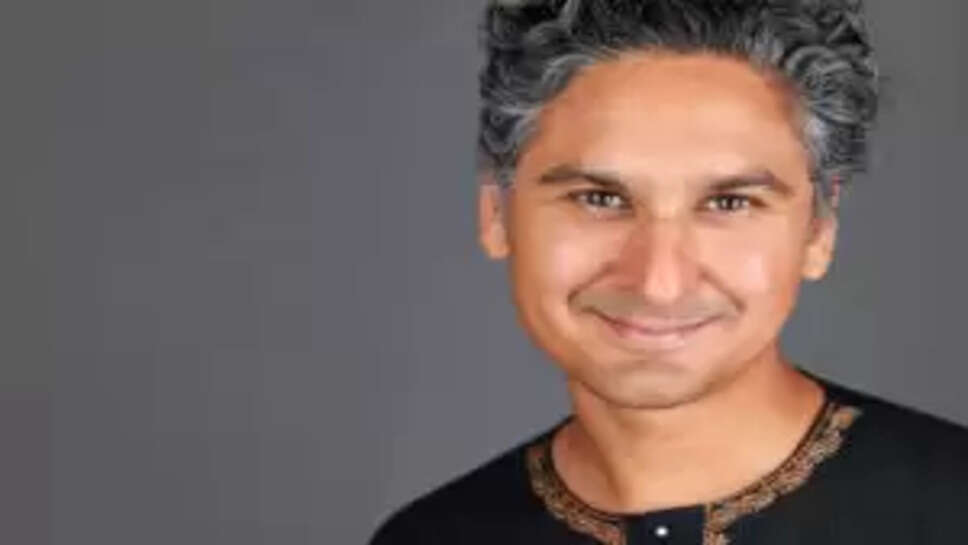Funding Brilliance: Rahul Mehta’s Vision for Indian Education

In a time when India’s higher education system is striving to align itself with global benchmarks, few have played a more quietly influential role than Rahul Mehta, founder of the Mehta Family Foundation (MFF). From establishing cutting-edge academic centres at Indian Institutes of Technology (IITs) to funding neuroscience, AI, and health sciences initiatives, the Foundation’s focus is simple yet bold: to invest where it matters most — ideas, infrastructure, and individuals.
Speaking candidly in a recent interaction, Mehta shared his vision of philanthropic investment in Indian academia, stressing that his approach is not transactional but deeply transformational. “We don’t chase short-term recognition. We think in decades, not quarters,” he says.
Laying Foundations for Innovation: The IIT Connection
Over the years, the Mehta Family Foundation has funded multiple interdisciplinary centres across IITs — including the Mehta Family Centre for Engineering in Medicine at IIT Kanpur, and the Mehta Family School of Data Science and Artificial Intelligence at IIT Guwahati. These centres are not just buildings with plaques; they are hubs of high-impact research, incubators for ideas, and magnets for global talent.
Rahul Mehta believes that IITs are uniquely positioned to act as knowledge accelerators in India. “The students and faculty are brilliant. What’s often missing is the ecosystem — the platform where fundamental science meets real-world application. That’s what we help build,” he notes.
He adds that the Foundation avoids dictating research agendas. Instead, it collaborates with academic leaders to identify areas where a strategic push can result in significant leaps. “We listen before we fund. The IITs know what India needs; we help make it possible.”
The Long Game: Education as Legacy
For Mehta, funding education is more than a philanthropic duty — it’s a generational legacy. The son of Indian immigrants, he grew up in the US, finding success in technology and entrepreneurship. But it was his visits back to India that instilled a sense of urgency to contribute meaningfully to the country’s intellectual capital.
“India is bursting with youth and ambition. But talent without direction or opportunity often goes wasted. That’s a moral failure we can’t afford.”
The Mehta Family Foundation, therefore, chooses not to measure success by media attention or immediate outcomes, but by the calibre of students trained, the research breakthroughs achieved, and the faculty empowered.
“Funding a lab that produces a paper is great. But funding a centre that trains 500 minds a year to think critically — that’s impact,” says Mehta.
Democratising Access to World-Class Research
A unique facet of MFF’s work is its insistence on academic openness. All research centres they support are embedded within public institutions and remain accessible to diverse student populations — irrespective of background.
In a landscape where elite research often gets confined to private universities or corporate R&D wings, Mehta sees public institutions like IITs as the true engines of inclusive excellence. “You can’t build a nation by excluding 90% of its young minds. That’s why our centres are in public universities — so any student with potential can access them,” he explains.
The Foundation also works to bring global academic collaborations to Indian campuses. Professors from Harvard, MIT, and Stanford have engaged with IIT students through MFF-facilitated programmes. The goal is to elevate Indian classrooms to global standards, without forcing Indian students to go abroad.
Crossing Disciplines: Where AI Meets Health, and Neuroscience Inspires Tech
Another hallmark of the Mehta Family Foundation’s strategy is its commitment to interdisciplinary work. Their centres deliberately blur the lines between engineering, biology, computer science, and even ethics. The idea is to solve real-world problems, which rarely fall into neat academic categories.
Take the Centre for Engineering in Medicine at IIT Kanpur, for instance. Here, students and researchers work on everything from wearable devices for neurological disorders to AI models for personalized cancer therapy.
Mehta says this kind of integrated approach is critical if India wants to lead in the next wave of innovation, especially in fields like genomics, digital health, and brain-computer interfaces.
“If you treat knowledge like silos, you’ll get siloed progress. If you mix ideas, you get breakthroughs.”
Challenges: Bureaucracy, Scale, and Institutional Inertia
Despite the successes, Mehta is realistic about the challenges of working in India’s education sector. He cites bureaucratic inertia, outdated procurement processes, and hesitancy toward global collaboration as frequent bottlenecks.
“There’s still resistance to change, especially when it comes from the outside. But we’re patient. We’re here for the long haul,” he says.
The Foundation also insists on sustainability — often pushing institutions to develop business models for long-term viability after the initial funding ends. “We don’t believe in blank cheques. We believe in co-creating solutions that can scale and survive.”
Beyond Brick and Mortar: Investing in People
Ultimately, what sets Rahul Mehta’s vision apart is his focus on people over projects. Many of the Foundation’s flagship programs include fellowships for PhD students, training workshops, and grants for young faculty.
“We’ve seen time and again that one well-supported faculty member can change a department. One inspired student can start a movement. Our role is to provide that spark,” he reflects.
He also notes the need to support mental health and creativity in academia, areas often neglected in India’s performance-oriented education system. The Foundation is now exploring programs that blend scientific inquiry with well-being, ethics, and societal relevance.
Looking Ahead: A Roadmap for Scalable Impact
What’s next for the Mehta Family Foundation? Mehta hints at expanding partnerships beyond IITs, possibly working with state universities and research institutes that often remain underfunded despite massive student numbers.
The Foundation is also exploring new frontiers like climate science, rural tech, and AI-driven education, all with a core belief that deep, long-term investment in academia will yield exponential returns for society.
“We aren’t here to fund vanity projects. We’re here to seed revolutions — quiet, intellectual, and unstoppable,” Mehta says with conviction.
A Blueprint for Purposeful Giving
In an age where philanthropy often mirrors venture capital, Rahul Mehta and the Mehta Family Foundation stand out for their patient, principled, and purpose-driven approach. By investing in Indian academia not as donors but as partners, they are helping build the invisible infrastructure of innovation — not just labs, but legacies.
As India positions itself as a knowledge superpower, it is visionaries like Mehta who remind us that ideas matter, but institutions matter more — and that change, when done right, may take time, but it always endures.
